
Prof. Dr. Vicharn Panich, Advisor to the Equitable Education Fund’s Board of Governance, addressed participants at the ‘All for Education: Education For All – Empowering the Nation for Every Thai Child’ forum during the ‘Empowering Changemakers and Learning Innovators for Every Child’ event at the IMPACT Forum, Muang Thong Thani. He highlighted that over the past two to nearly three days, we have heard impressive stories from all eight rooms. The next significant step is both clear and simple: everyone needs to return to their respective areas and begin working on their dreams—developing Thai children to their fullest potential and enhancing the quality of Thai citizens. This effort extends beyond children’s education to encompass lifelong learning, impacting everyone in all roles and stages of life. This embodies the concept of ‘Education For All and All For Education.’
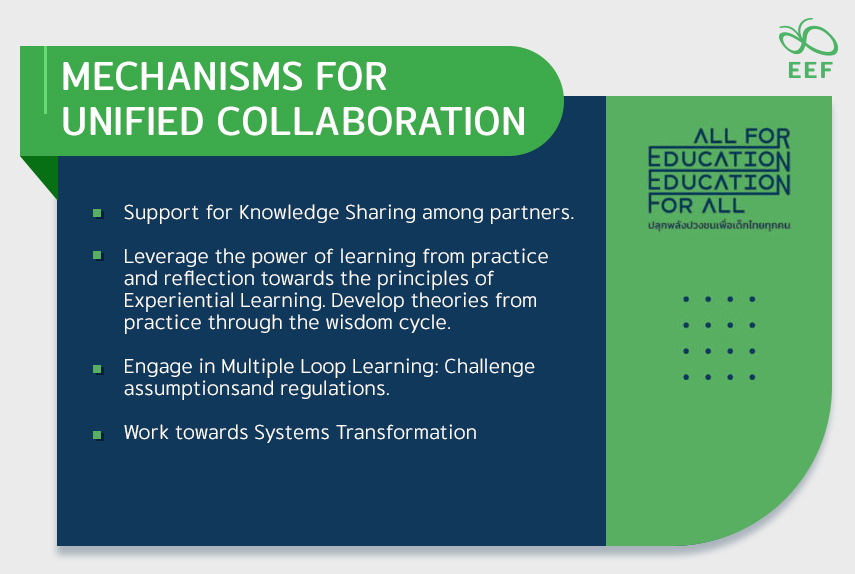
Looking ahead, I believe the three days we’ve had, including the prior work by the EEF and its partners as a networking mechanism, should not be limited to just these three days each year. This networking should continue throughout the remaining 362 days, where we engage in real-world challenges and support each other under realistic conditions.
The essence of creating capable Thai citizens and improving education quality lies in learning from real-life experiences. We need to expand the education system beyond traditional schools, allowing children to learn in practical, real-life contexts. This approach, known as ‘Experiential Learning,’ emphasizes the importance of learning from experience. After gaining experience, it’s crucial to use a tool called Reflection. Adults should encourage children to reflect and practice asking themselves and others questions to foster collaborative reflection. This is central to modern and future learning and resembles KOLB’s experiential learning cycle, a true wisdom cycle.
While learning from books and teachers is valuable, it is not as effective as learning from real experiences. Another important learning method is Multiple Loop Learning, which involves questioning underlying assumptions and beliefs. We need a transformation of the Thai education system, or System Transformation, as the current system risks leading to a decline in quality and effectiveness. It is essential that we work together to drive this transformation.
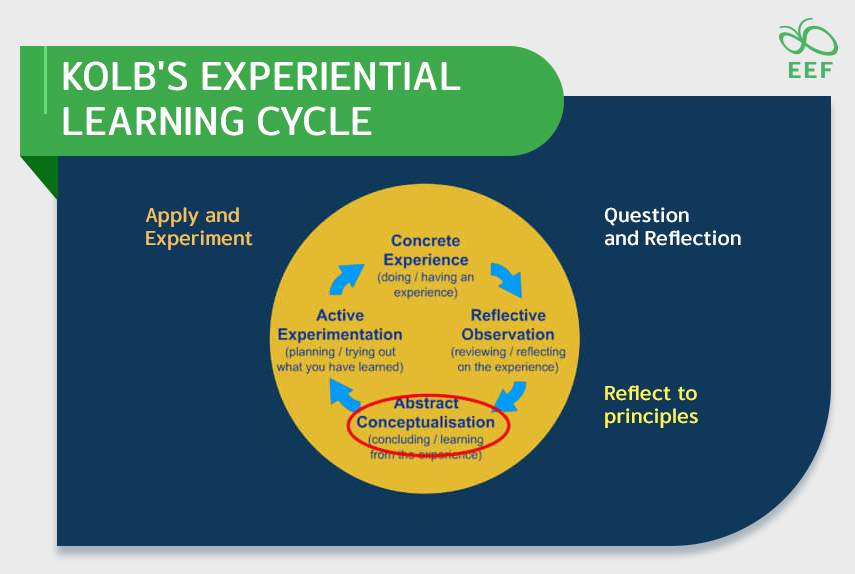
KOLB’s experiential learning cycle begins with Concrete Experience derived from observation, followed by Reflective Observation, where immediate reflection takes place. This is followed by the third step, which involves developing skills or methods and ideally leads to Abstract Conceptualization, where deeper wisdom is achieved. Practicing reflection to derive abstract principles is crucial. Without this practice, individuals may only reflect on methods, which is valuable but insufficient. We need to advance to principles that may align with or differ from our previous knowledge, leading to true wisdom. When encountering new ideas, it is important not to accept them fully but to believe partially and question the rest. Children should be trained to reflect on their actions and collect a range of reflections, not just similar ones, and then consult to identify key issues. This process leads to Active Experimentation, where one tests if the results meet expectations. This cycle repeated millions of times throughout life, helps individuals develop wisdom through both direct experience and principle-based thinking, which is central to modern learning.
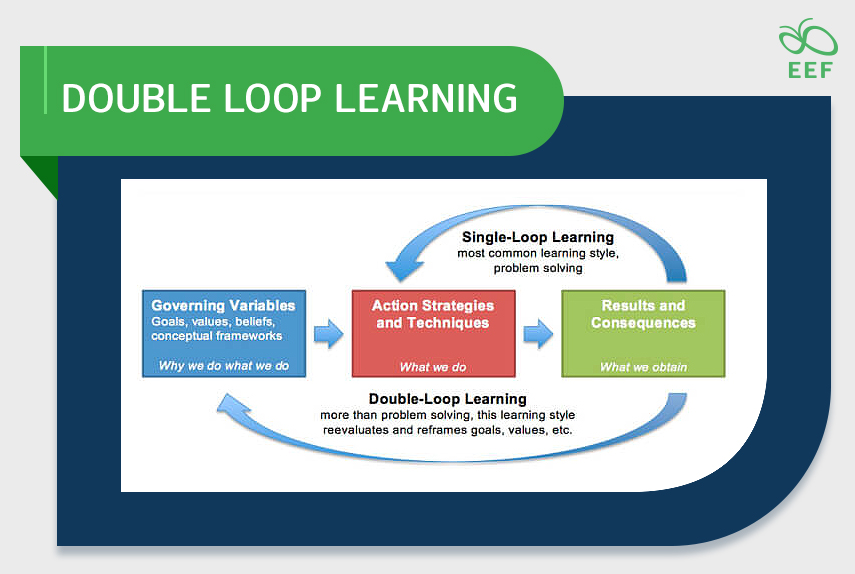
Double Loop Learning, also known as Multiple Loop Learning, involves multiple layers of feedback. In this concept, we start with a goal (represented by a green box), methods (red box), and underlying principles or assumptions (blue box). The principles inform the methods, but the actual outcomes often differ from expectations. Feedback is used to adjust methods or actions, which is beneficial. However, the process is enhanced when feedback is also applied to the blue box, questioning the underlying assumptions or beliefs. In some cases, Multiple Loop Learning may include an additional layer, such as legal or regulatory issues (a fourth box on the left). This iterative feedback process fosters wisdom and is a core principle of the Feedback Loop learning system.
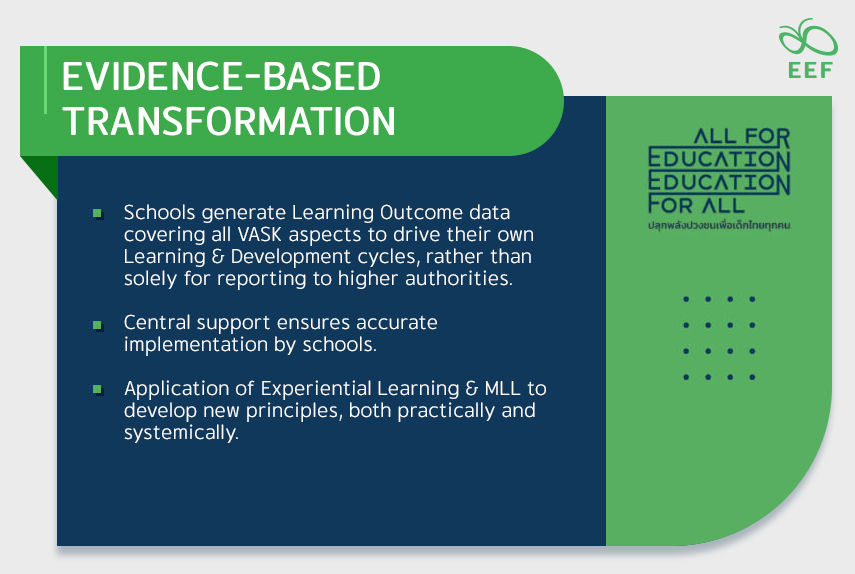
All of this serves as a tool for transforming education and learning in Thai society by relying on evidence rather than assumptions or textbook knowledge. We need to assess the impact on children’s learning outcomes across VASK. For instance, asking, “Why is honesty important?” addresses values, while questions like, “How does adopting this approach lead to these results, and what attitude is needed for better outcomes?” focus on attitudes. Additionally, skills and knowledge must be considered. The goal is to develop comprehensive learning outcomes that encompass VASK or Head, Heart, and Hands. Each school should focus on enhancing these outcomes to improve their students’ learning results. Once this is achieved, reporting to higher authorities will become more straightforward and less of a concern. However, the emphasis should be on creating a robust data system for feedback on one’s work, with reporting being a secondary outcome. Crucially, to ensure accurate evidence collection, central support is necessary to empower schools effectively.
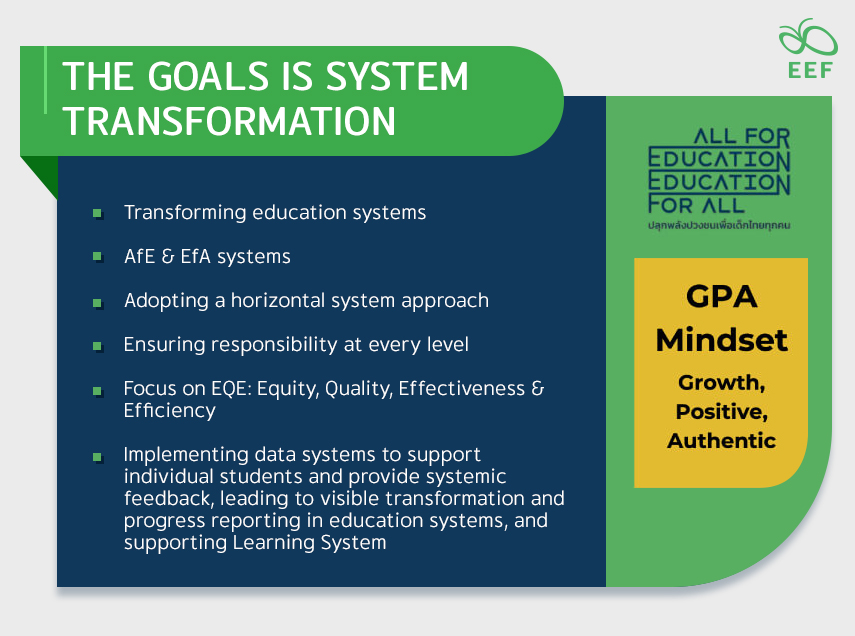
The long-term goal is System Transformation, applying the insights we’ve discussed over these three days, which we have been working towards for many years. Education extends beyond just schools, teachers, and principles; it involves contributions from various partners, as demonstrated in our different meetings. In today’s rapidly changing world, marked by uncertainties and turbulence, continuous learning is essential for everyone. Transforming the education system requires shifting from a top-down approach to a more horizontal and empowering system. While challenging, this shift is feasible and can be achieved without altering existing rules.
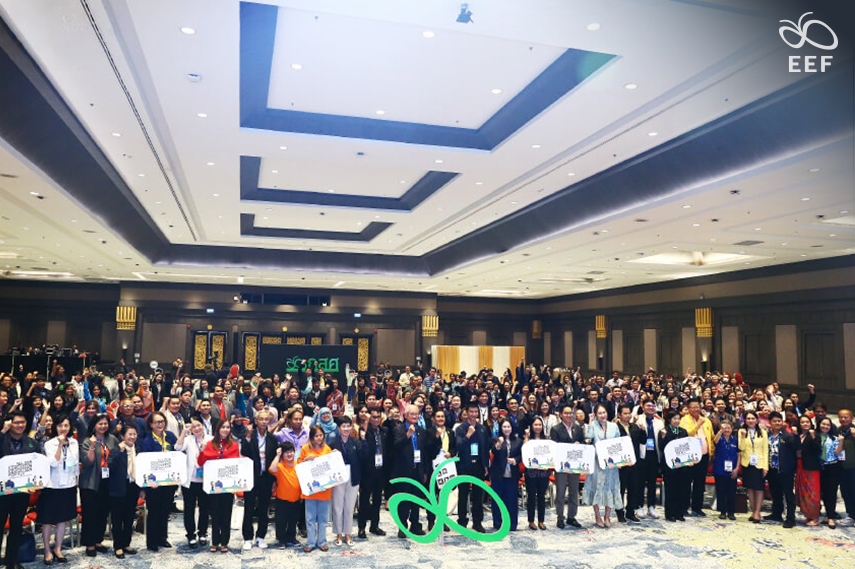
Another crucial aspect is shared responsibility. The burden should not fall solely on teachers or schools but must include parents, families, communities, and local governments. The core of any effective system is EQE – Equity, Quality, Effectiveness, and Efficiency, supported by robust data systems. Emphasized Q-info, which helps identify issues to support children effectively. This involves using data systems to assist children individually and to enhance the overall system. The focus should be on a GPA mindset, which includes a Growth Mindset, a Positive Mindset, viewing challenges positively, and Authenticity, which means speaking truthfully rather than merely pleasing authorities. Ultimately, it’s about collaborating and learning together.

